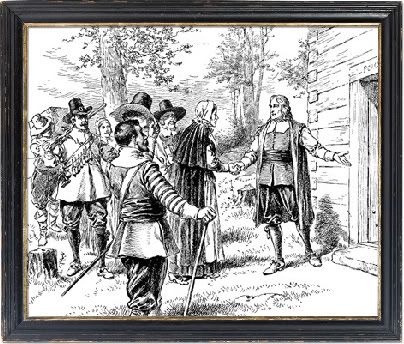
If a Portrait was Painted of Roger Williams Leaving Salem
Williams would be draped in a heavy gray traveling cloak;
snow to mid boot and still falling, adorning the cornered oak
with the cream-colored petals of the burgeoning pear. The trail
ahead, more accustomed to squirrels than sages,
broadens as it snakes its way from the city to forest, bending
river-like, glazed, a lustrous path from severe to tender.
Williams, huddled yet rigid, would face ahead, the raw
Southwest wind a guide, or tyrant, driving, uncompromising.
His eyes would fail to focus on the trail, trailing off to the coppice
instead, ahead was Rhode Island, ahead was his Providence.
His pallid complexion (due to illness) would be intensified
by the glare of the snow, and the city behind,
But it would not be a sickly pale—he would shine.
What do you think is the most important part of a historical poem?
Historical fiction is successful when an author is comfortable and well researched about the particular subject, but not confined by fact. Aristotle says it best in his poetics; to be universal, the poet has the advantage over the historian because "one says what has happened, and the other says the kind of thing that would happen". Historical poetry becomes poignant when the poet can channel fact through his or her writer's eye.









0 comments:
Post a Comment